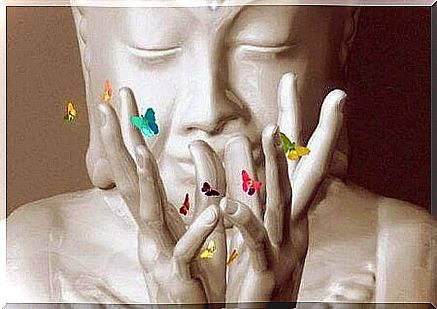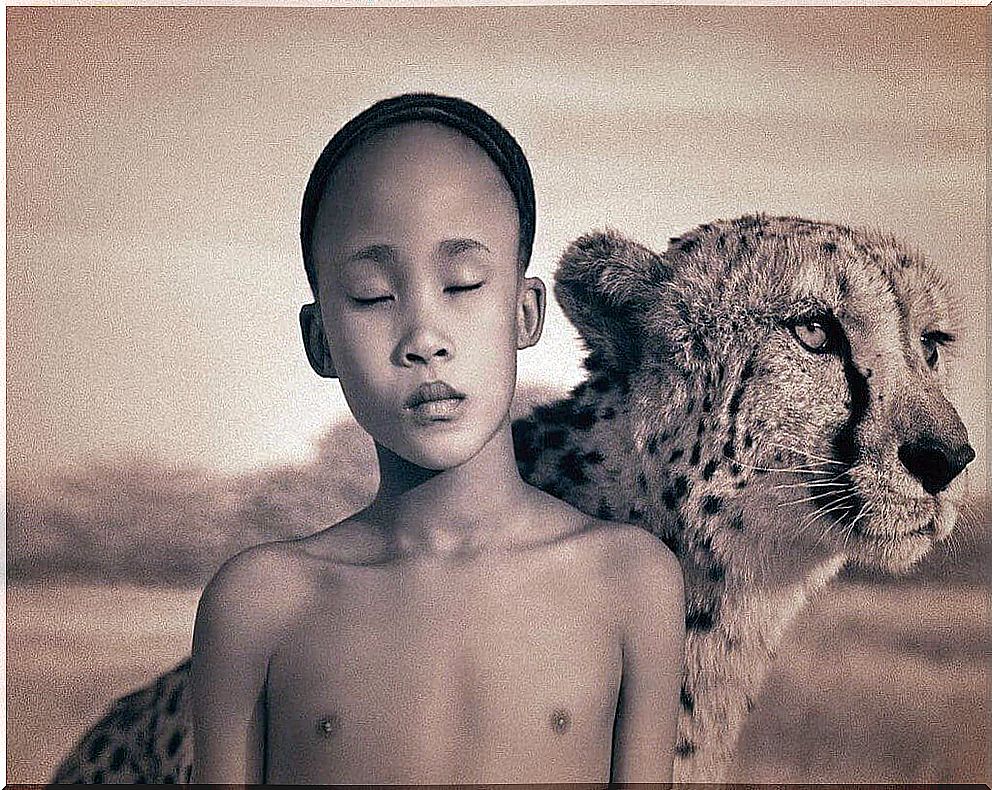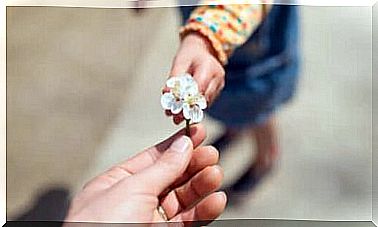5 Buddhist Tips For Educating Our Children

Over time, Eastern philosophy and Buddhism have established themselves as clear references in Western culture. This way of seeing life promotes a balance that we lack. It is the union of our emotional forces that guarantees success in life.
So, since in Western culture other values are advocated that disconnect us from the particular and collective interior, Buddhist lessons bring us closer to exploring our emotions.
In this sense, it is clear that we all want children to be happy and to grow up healthy and energized. From this basis, one can borrow certain attitudes from Buddhism which encourage this to be a reality, and not an impossibility. So let’s see what advice we can take from Eastern Buddhist philosophy in order to get there.

Being smile to a child who is trying to interact with us is almost instinctive. Very often, with the haste and the daily tasks, we forget this so important point and we no longer care about our children properly.
As a result, they no longer feel recognized and they disconnect from themselves surprisingly quickly. If we take the time to think about it a little, we realize that at a time already distant for us, we stopped showing them surprise and admiration in order to look for something else.
All of those things that generate a negative mood in us can come to dominate us. Boredom, jealousy or anger are emotions and feelings that arise naturally. You can’t blame yourself for that, you just have to learn to channel those emotions and feelings.

“Control your thoughts” (Buddha). Our thoughts are in our mind, they are chaos and it is important to lay them bare. They come and go without meaning. Children, like adults, invent or interpret things, ceasing to fly alone in their thoughts.
We can understand, then, that our thoughts are our tormentors, which is why we need to help our children to connect with their healthy thoughts and to disconnect from their tedious thoughts.
We give children natural resources, we let them go and get out of these moods by shaping their imaginations and their resources. They are taught that it is better to take a piece of paper than to turn on the TV to get out of their boredom, and that it is in them that the possibility of creating wonderful things lies.

There is nothing wrong with using the television, tablet, cell phone, or game consoles, as long as it all stimulates their connection with themselves.
In order for our children to be aware of their worth, it is important that they set their own words as well as their own standards. This allows them to be more aware, as our minds are often filled with crazy words and standards. That is why it is necessary that they learn to think about what is necessary and to speak according to their vision of things.
In order to adapt this advice to the education of our children, we must not forget to set an example for them. This is how we begin to wander in a constant quest for pleasure and safety, in a continuous flight from fear, suffering and inconveniences that prevent us from feeling at peace, and we will teach our children to do the same.

The word “buddha” comes from budh which means “to awaken”; “Buddha” therefore means “Awakening”. A Buddha is a fully awakened person, as if he has come out of a deeper dream, as if he has discovered that he is no longer in pain, that suffering has only been a bad dream. We can all, and children too, come out of this nightmare by trying “not to do anything other than good, to avoid all damage to others and to purify our hearts”.









